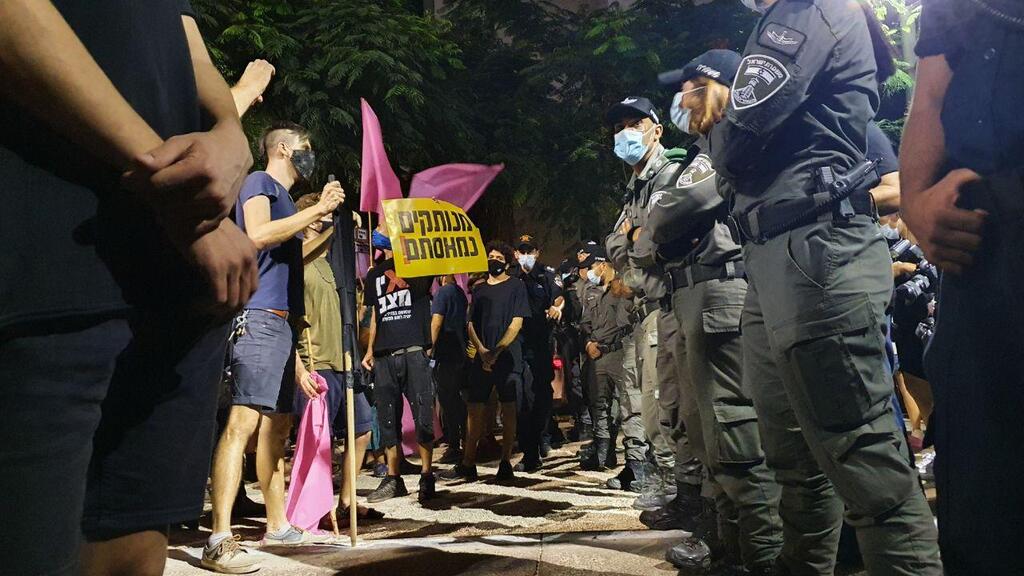Dispatching police to violently disperse non-violent demonstrators could set Israel on fire.
Political science students who learn about "democracies in distress" focus on popular protests, change to or collapse of governments and the origins of revolutions.
5 View gallery
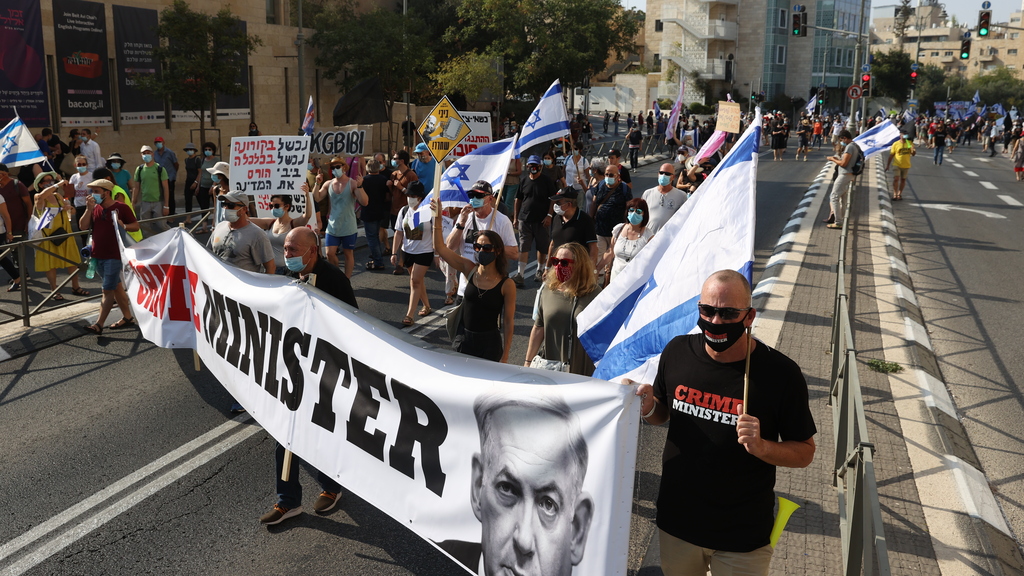

Anti-Netanyahu protesters carrying a banner reading 'crime minister' marching in Jerusalem in September
(Photo: Amit Shabi)
These are processes of change that are passionate and dangerous and can lead to good or bad outcomes.
Public protests are a reaction to frustration with a government, failures of leadership and/or corruption.
There are often anti-democratic elements who attempt to promote change but more often, it is extreme nationalists, Marxist or religious forces who succeed in bringing down governments. That is how fascism rose to power in Europe almost a century ago.
When protests turn violent, they risk a quick deterioration into civil war that can also result in the rise of dictatorships.
Civil war may sometimes bring about renewal, if it is not mired in violence, and "good" non-violent protests can end in reforms that weed out existing ills without bringing down a government.
Often governments fail to understand the magnitude of public protest. Corrupt democracies have tried to delegitimize protesters by branding them dangerous anarchists or revolutionaries, enlisting their supporters to turn against them.
Governments also struggle to gauge the duration of protests or their popularity because anti-government sentiment is fickle and can turn on a dime. As a result, leaders often fail to accurately assess the necessary balance of acceptance and oppression, with the latter causing greater harm.
5 View gallery
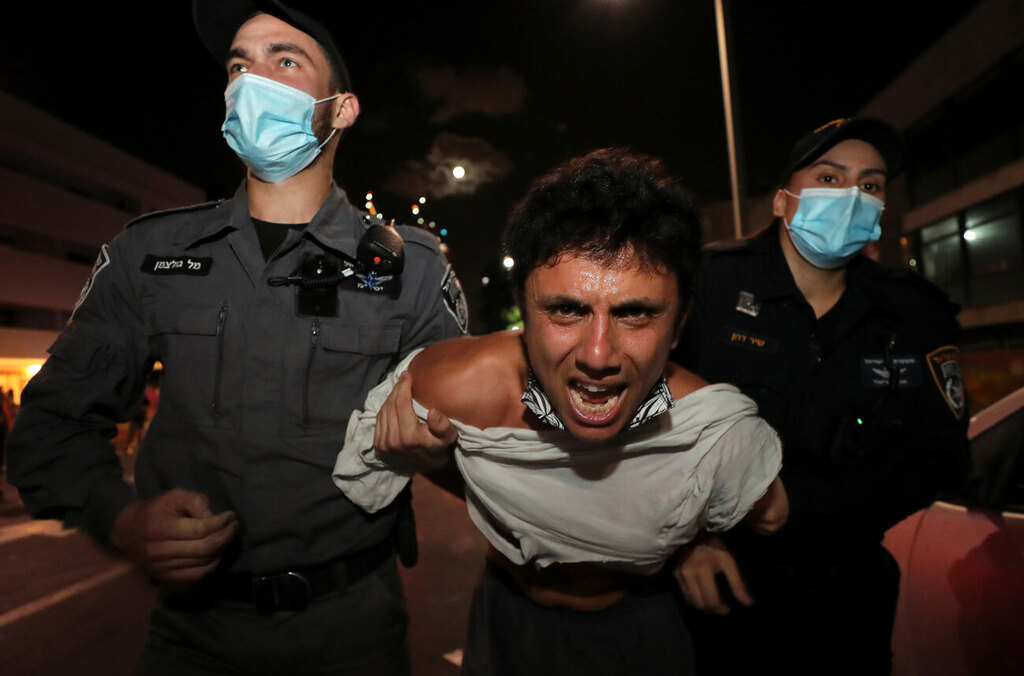

Police arresting a protester during a demonstration in Tel Aviv on Saturday
(Photo: Reuters)
An intelligent democratic leadership must be able to accept public protests against it, and if the demonstrations are non-violent – as the Israeli protest movement has been - there must be no violence used against it either.
In 90s Britain, popular protests elicited change within the ruling Conservative party, with Margaret Thatcher being replaced by John Major as leader and prime minister.
Israeli protesters have also declared their intent to oust Prime Minister Benjamin Netanyahu and see the establishment of an alternate government that would be free of ultra-Orthodox influence and a fundamentally anti-democratic sway.
5 View gallery
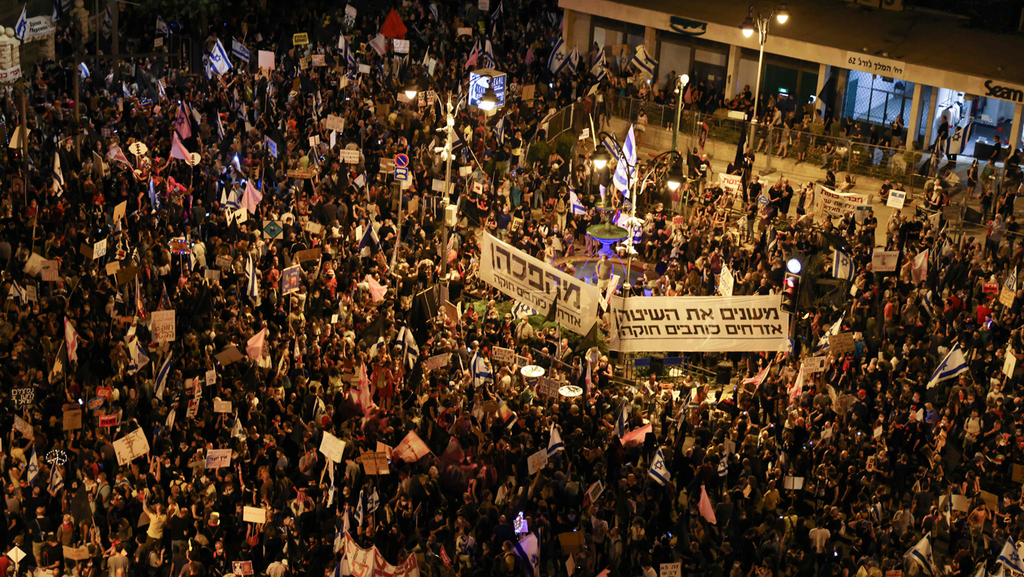

An anti-Netanyahu demonstration outside his official residence in Jerusalem last month
(Photo: AFP)
A failing government that cannot exert authority over parts of the public and is suspected of corruption will eventually lose its legitimacy. Such a government can endanger democracy by allowing its leader to assume emergency powers.
An intelligent leadership, in contrast can take a step back despite a cloud of suspicion over it, own-up to its failings and allow an orderly transfer of power - as British Prime Minister Tony Blair did when the public turned against him. Blair stood aside and allowed Gordon Brown to succeed him within the party and in Downing Street.
Israel has also seen such an example, when after the 1973 Yom Kippur War, Prime Minister Golda Meir and Defense Minister Moshe Dayan both agreed to clear the way for a new government under the leadership of Yitzhak Rabin.
In Israel of 2020, the protest movement is still growing and it is still unclear where it will lead - but a profound change to society is already evident.
5 View gallery
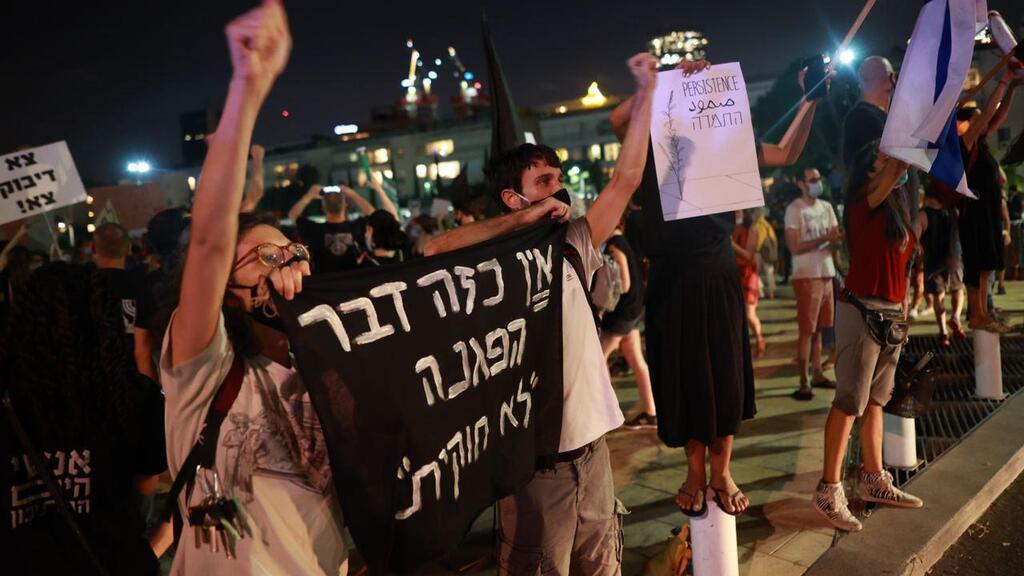

Protesters in Tel Aviv condemn Prime Minister Benjamin Netanyahu for attempting to silence them with legislation. The banner reads: 'There is no such thing as an illegal protest'
(Photo: Tal Shahar)
Thus far, protesters have observed public order, displaying a democratic maturity. But in the face of the government's failure and that of the prime minister in all aspects of governance and morality, demonstrations are likely to increase despite the lockdown imposed last month.
Attempts to stifle the protests outside the prime minister's Jerusalem residence ostensibly on the grounds of health concerns were seen not only as lies, but instigated thousand of smaller demonstrations all around the country.
These will surely change the equation, whatever the intention may have been.


